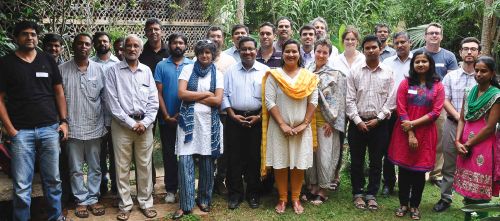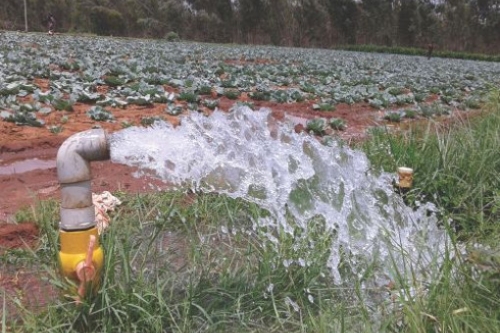
Thompson, Penny and India colleagues at a 2015 workshop.
Professor Sally Thompson and PhD candidate Gopal Penny, along with collaborators in India, received the 2015 Jim Dooge Award for the best paper in the European Geophysical Union's flagship journal "Hydrology and Earth System Science".
The paper asks how, in situations where there is limited environmental data and a lot of environmental change taking place, we can employ a "multiple working hypothesis" approach to narrow the scope of future research and to avoid generating policy conflict. It uses the Arkavathy River Basin, in the hinterland of the city of Bangalore, as a case study.
The Arkavathy used to supply drinking water to Bangalore, but in the last 40 years its flow rate has dropped by 80%. The cause of the drop is not agreed upon, leading to tremendous policy conflict. (See groundwater pumping at left.)
The team was able to use the sparse data record to rule out some of the more popular theories, and focus the debate, going forward, on the roles of in-stream obstructions and groundwater over-exploitation.
See paper details: Srinivasan, V., Thompson S.E., Madhyastha K., Penny, G., Jeremiah K. and Lele S. Why is the Arkavathy River drying? A multiple hypothesis approach in a data-scarce region, Hydrology and Earth System Science, Vol. 19, pp. 1905-1917, doi: 10.5194/hess-19-1905-2015, 2015.

